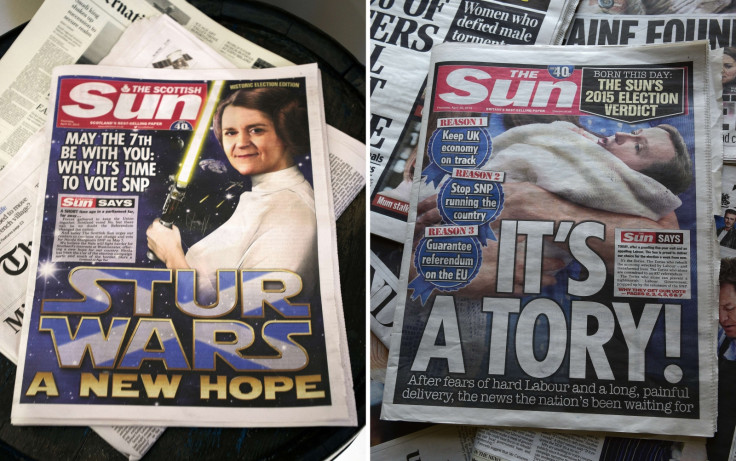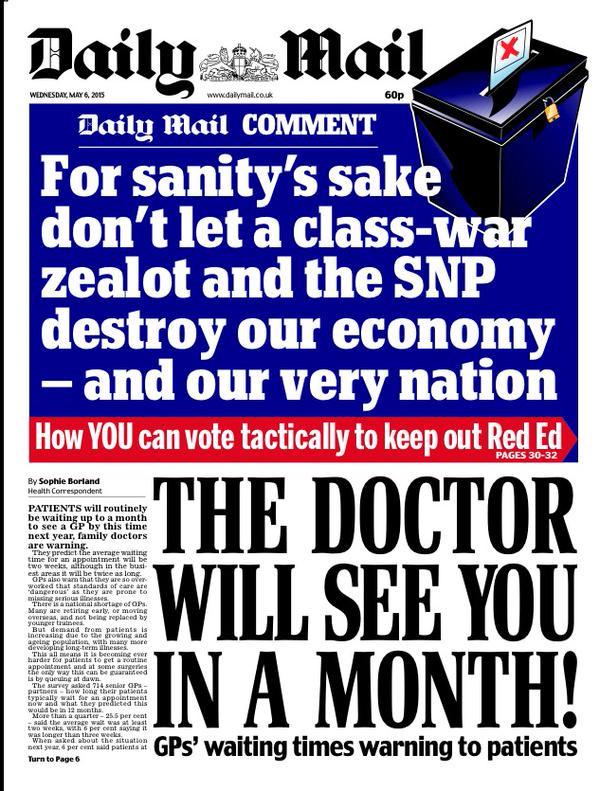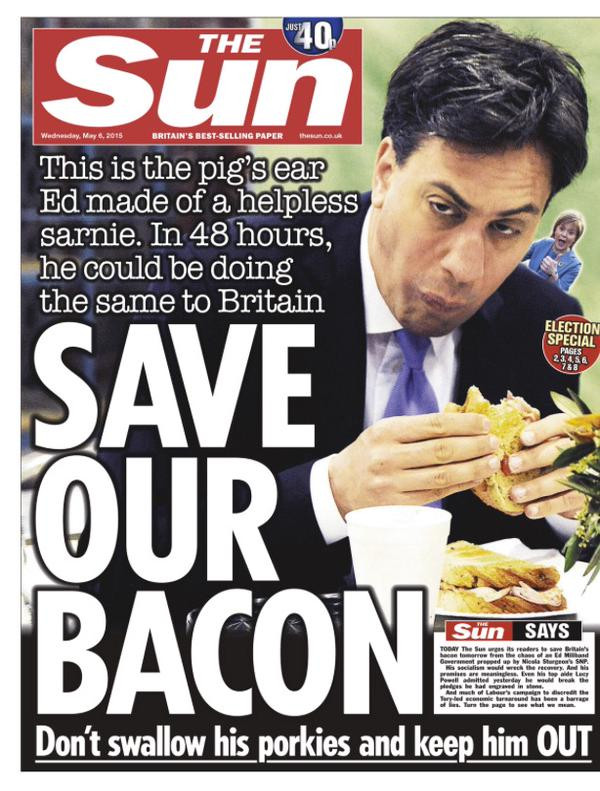Election 2015: Does anyone really listen to the Sun?

When the Sun switched its allegiance to the Conservatives in 2009 it ended a 12 year dalliance between the Labour party and the Murdoch press that was subsequently blamed – in part, at least – for the party's defeat to the Tories in 2010.
The endorsement of newspapers for major political parties in the UK is no new phenomenon – and nor is the perception of their importance.
The Sun's "If Neil Kinnock wins today will the last person to leave Britain please turn out the lights" was touted as a major reason for Labour's crushing defeat by John Major in 1992 – not least by the Sun itself.
Equally, it was Tony Blair's open courting of Rupert Murdoch and his news empire in the run up to 1997 that was credited with helping him to win the elections that year and lead Britain for more than a decade.
Murdoch's newspapers supported Blair's domestic and foreign policies even at their most divisive, during the Iraq war and its aftermath.

But endorsements are a classic chicken-and-egg issue in British politics, with experts and former campaigners sceptical over how much impact they actually have on election day.
Huw Evans, a former Labour campaigner and veteran of the 1997, 2001 and 2005 elections, pointed out Blair was already ahead in the polls when the Sun backed Labour in 1997. Equally, Labour was already tanking under Gordon Brown in 2009 and had been down for two years when the Murdoch press shifted its allegiance to the Conservatives.
"It is quite rare that the media front run a particular trend, particularly national newspapers. They invariably come in behind a trend that is already established," he told IBTimes UK.
At the same time, Evans – now director general of the Association of British Insurers – said as Blair realised it was the years preceding and immediately after an election when the endorsement of powerful media outlets mattered most: "Blair was trying to [persuade] the Murdoch press [...] not to slant and bias its reports in a way that made it difficult to govern."
In this regard, Labour under Miliband has suffered far worse than the party's leaders in the past. The Guardian reported on 6 May that the Sun's opposition to Labour under Miliband has been more virulent in the run up to the 2015 election than it ever was towards Kinnock.
'It is media organisations that are creating the stories that people are sharing on Facebook and Twitter.'
It cited research by the Media Standards Trust that 95% of leader columns in the Sun were anti-Labour ahead of the 7 May general election compared with 79% in 1992. It also found 77% of newspapers owned by Murdoch's News UK – which includes the Times – were opposed to Miliband compared with 44% that were against Kinnock.
But critics point out that while newspapers may have got more virulent in their support of parties and candidates in recent years, the decline in readership has meant their endorsements carry less weight. Official ABC figures reveal sales of newspapers have fallen by 28% since the last election in 2010, while the phone hacking scandal and subsequent enquiry into media standards has harmed the trade more generally.

"It's quite clearly the closest election for a long time, so you would think that the print media would have a huge influence over which way it's going to go. But I don't think they do in the traditional sense. The era [...] of newspapers endorsing candidates and the feeling that that carries weight, that has gone," David Yelland, a former editor of the Sun, told Reuters.
In terms of numbers, Anthony Wells, research director at pollster YouGov, said it was extremely difficult to quantify how much influence a newspaper endorsement has on voters – enhancing the chicken-and-egg situation of whether endorsements lead to increasing popularity or increasing popularity leads to endorsements or at least more favourable coverage.
At the same time, while some have argued that in a social media age, the endorsement of actual newspapers is less important, Wells said the diminishing role of news outlets in fomenting opinion among voters can be overstated. He said: "It is media organisations that are creating the stories that people are sharing on Facebook and Twitter."
© Copyright IBTimes 2025. All rights reserved.





















